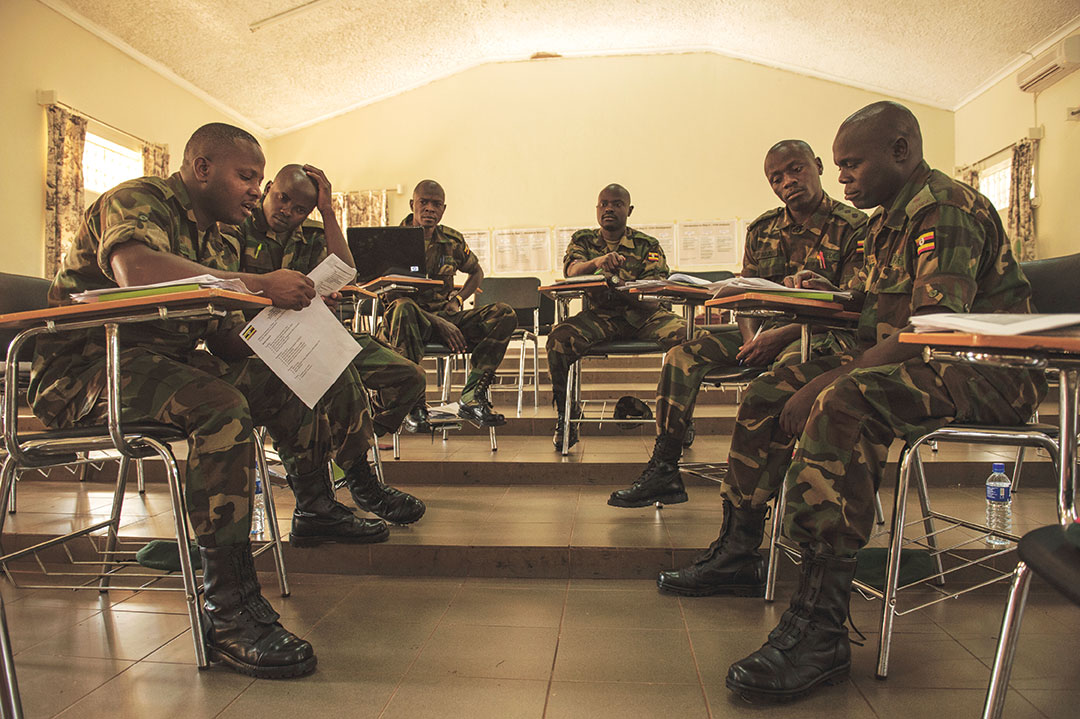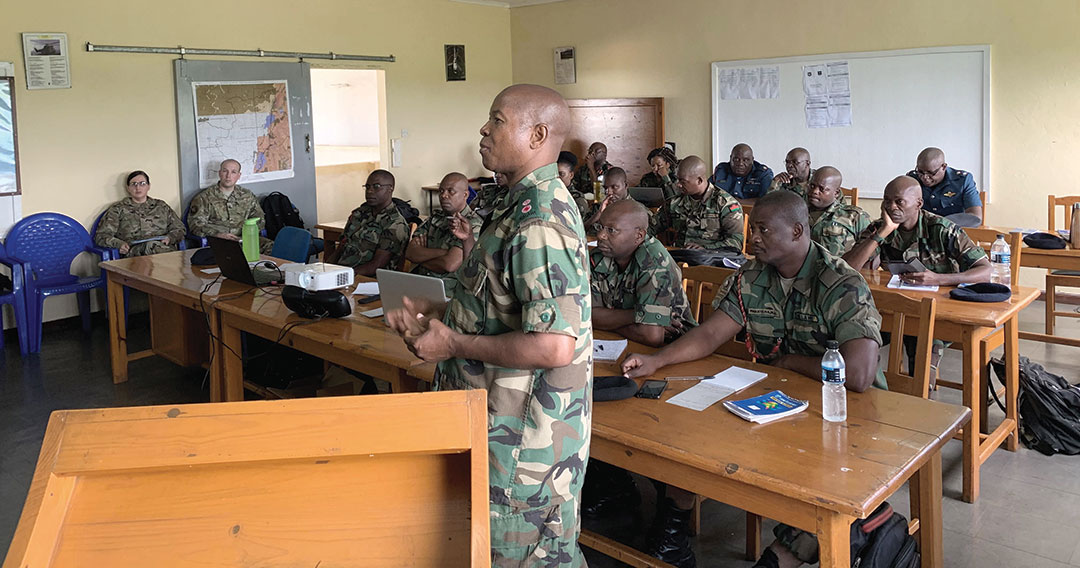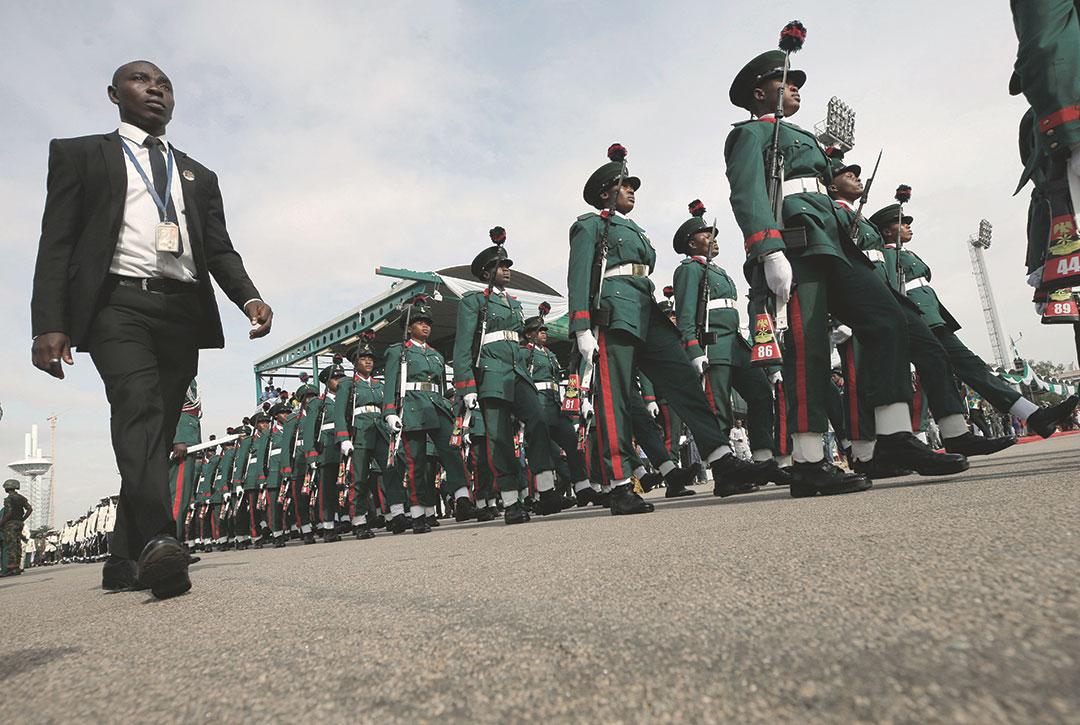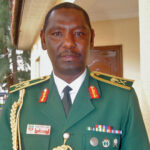MAJ. GEN. (RET.) MUHAMMAD INUWA IDRIS
ilitary officers have all benefited from professional military education (PME) throughout their careers. PME is structured to include a mix of training, skills acquisition and traditional classroom instruction. It is designed to support a Soldier from the beginning of his or her career up to the time he or she exits active duty. It shapes attitudes toward enhanced achievements of individual and institutional missions. It is graduated into levels and compartmentalized between the enlisted and officer cadres.
Soldiers who have studied at the most prestigious PME institutions carry that pride of accomplishment with them throughout their careers.
For enlisted Soldiers, PME begins at the initial Soldier training institutions and culminates at the warrant officer academies. For officers it begins at the initial officer training academies and runs through the war colleges or equivalent institutions for policy and strategic education. It is an established fact that the progression of careers in the military is structured to be consistent with required and relevant PME at every level. This demonstrates that the military is an adaptive organization with an emphasis on continuous learning.

Adapt or perish
It is important that these institutions do not become rigid. Regular evaluation of PME must be done to determine whether it is achieving its desired functions and objectives. This is particularly urgent today, considering the complex environments in which the military finds itself operating. In evaluating PME, one must admit that the success is mixed. On the positive side, the structure and conduct of PME is impressive and successful. These are serious institutions with rigorous academic requirements. However, the outcome in terms of performance and success of missions in many parts of the continent is not as encouraging.
I speak from the Nigerian military context, which is where I spent my career. It is the institution with which I am most familiar. In a career of 35 years, I was fortunate enough to have spent the last five years in different PME institutions as a commanding general. Through this experience I have seen the strengths and importance of PME and have observed the urgent need to reform and adapt to meet the demands of current threat environments.
In the Nigerian military, PME is structured, especially for the officer cadre, so that one cannot aspire to higher ranks without incremental PME exposures and experiences. This starts from the initial officer training at the Nigerian Defence Academy and culminates with strategic-level education near the peak of generalship. This structural aspect of PME is considered a success, and it is similar to how PME is structured in other African countries.
African militaries have successfully promoted careerlong learning, but it is increasingly evident that the training and incentives in the military education system do not always produce the intended outcomes. The major incentive for officers is to embark on and complete relevant courses to progress to higher ranks. PME has become a box for them to check to move up the ladder. The use of acquired education to complete tasks and solve complex problems in the field has been suspect. The result of this is a military that is increasingly reactive with short-term plans and with rapidly diminishing capabilities toward mission accomplishments. This is evident in the way assigned tasks are being confronted and conducted.

New Threats
Change is urgent. The continent is facing a wide range of extremist threats in places such as the Lake Chad Basin, the Sahel, the Great Lakes region and the Horn of Africa. Many of these threats festered for years before individual countries developed coherent strategies for response. It has taken longer for regional security partnerships to take shape. This is a challenge for PME institutions, which should look at their approaches and ask whether they are training military professionals to be proactive to volatile, uncertain, complex and ambiguous (VUCA) issues.
Evaluation of how the military conducts insurgency operations against the Boko Haram terrorist group in Nigeria has laid bare the shortcomings of PME in preparing the military. For example, in the early years of the insurgency, most missions were conducted in quick reactions to insurgents’ attacks without adequate planning. The intelligence and early warning systems largely relied on open-source information and lacked relevant analysis. The logistic and procurement systems were reactive, short-term and largely unrealistic. The branches of the armed service largely conducted independent operations with little or no coordination. All these diluted the successes of the war against the insurgents and contributed to the deepening politicization and lack of transparency in operational matters within the military. PME has a significant role to play in reversing these negative trends.
Asking Tough Questions
Comprehensive military transformation can be initiated through PME. However, PME must first be transformed and refocused toward problem-solving. PME must be restructured toward ensuring that the military is prepared to develop deliberate, timely and enduring responses to current and emerging VUCA threats instead of unplanned ad hoc responses. PME institutions must begin to find answers and solutions to critical questions such as:
- How can operational planning systems be more robust and realistic?
- How can early warning systems be made more responsive and adaptive?
- How can logistic systems be made more effective and efficient?
- How can procurement systems be more realistic and transparent?
- How can jointness and interagency collaborations be improved?
The answers and solutions to these and many more questions can be provided by PME if it is reoriented to do so. That reorientation can be initiated with the right political will and direction from the military hierarchy. Also, adequate and relevant investments in PME would have to be made to review and update curricula and acquire relevant technology. Advancements in information and computer technology have made learning much easier for the military through simulation and wargaming tools. PME institutions must have access to these tools.
Therefore, although the structure and delivery of PME can be said to have been perfected, the problem-solving skills learned in PME are inadequate. As military officers we must take ownership of this problem. The military has a tendency of shifting responsibility by always blaming the political class for not providing sufficient financial support to undertake its missions. In many African countries the military was highly politicized during past involvements in political governance. The military hierarchy in the succeeding democratic dispensation has done very little toward a comprehensive transformation and realignment. Efforts at security sector transformation have been largely selective, uncoordinated and incomprehensive. The outcome has been significant effort and investment with uneven and unsatisfactory results.

The challenges and dynamics of the current operational environment are evolving quickly. This partly explains why militaries appear to be overwhelmed in a VUCA environment. The answers and solutions should be found in PME that is oriented and focused toward problem solving, as opposed to PME that is designed largely for the purposes of career progression.
Contemporary PME for African nations must be designed to address the specific needs of the military as an institution and the nation as a whole. The current system must be reevaluated with a view to restructuring and realigning it to produce better outcomes. PME must be made deliberately contextual in terms of realistic scenario settings. Curricula must undergo continuous tests and evaluations in the field and through operational performance reviews so that relevant lessons for improvements can be derived. Critical and creative thinking must be infused at all levels so that innovations in problem-solving can be triggered and encouraged. PME must stay up to date with contemporary trends on the use of simulation and wargaming tools for modeling applied lessons learned. Simulation tools also should be introduced for projection of future events and modeling of likely responses and outcomes. These tools can easily be used to relate strategic contexts to local environments, which is necessary for contemporary military operations, thus making PME more adaptable, realistic, future-oriented and visionary.
I hope we can continue to leverage international assistance to correct the shortcomings and realign PME for better performance. Development partners have done so much and so well for us. African militaries must, therefore, rise to the occasion of improving and enhancing their military capabilities through PME, while development partners continue to sustain support and assistance.
 Maj. Gen. Idris is the former commandant of the Nigerian Defence Academy in Kaduna. He served in a variety of roles over three decades, including chief of staff for the Nigerian Army Intelligence Corps, and after his retirement from active duty, he served as registrar for Baze University in Abuja. He holds two master’s degrees from the National Defense University in Washington, D.C., and has studied at defense institutions in the United Kingdom and Pakistan. He received the Golden Jubilee Medal-Centenary Medal for Nigerian Servicemen and the Grand Service Star Medal in recognition of 30 years of service.
Maj. Gen. Idris is the former commandant of the Nigerian Defence Academy in Kaduna. He served in a variety of roles over three decades, including chief of staff for the Nigerian Army Intelligence Corps, and after his retirement from active duty, he served as registrar for Baze University in Abuja. He holds two master’s degrees from the National Defense University in Washington, D.C., and has studied at defense institutions in the United Kingdom and Pakistan. He received the Golden Jubilee Medal-Centenary Medal for Nigerian Servicemen and the Grand Service Star Medal in recognition of 30 years of service.

